Development Cooperation between Iceland and Uganda
Iceland and Uganda have worked together in the field of development cooperation since 2000, first under the Icelandic International Development Cooperation Agency (ICEIDA) and later under the Ministry for Foreign Affairs when ICEIDA was integrated into the Ministry. The Embassy of Iceland in Kampala, the capital of Uganda, officially opened in 2004. To begin with, the focus was on fisheries, but soon attention was paid to other areas, especially education, water and sanitation.
In 2001, cooperation began with the Kalangala district, which consists of 84 islands in Lake Victoria. The cooperation with Kalangala resulted in the first steps of the district approach, which Iceland has since put a lot of emphasis on in its development cooperation. Cooperation with Kalangala district was concluded at the end of 2019 and positive results were achieved. For example, the percentage of primary school students who passed exams increased significantly during the period, and Kalangala, which used to be among the worst performing districts in Uganda, was among the 20 best performing districts out of 122 districts in Uganda in 2019.
In Uganda, Iceland currently works with the district authorities in two districts, Namayingo and Buikwe. Fishing is practiced in both districts, and Iceland's support is focused mainly on villages where fishing is an important source of income. The cooperation is mostly in two areas: education and water and sanitation. Efforts will also be made to increase support to the districts for climate related actions and the economic empowerment of women and youth. A key element in Iceland's approach is to improve governance and build the capacity of local governments to provide basic services to residents and implement their own plans for district development.
The focus of Iceland's bilateral development cooperation is to promote improved living conditions in its partner countries by supporting national plans and efforts to reduce poverty and improve social and economic living conditions in the districts supported by Iceland. Iceland's development cooperation in Uganda is in line with Iceland's priorities in bilateral development cooperation and is based on Iceland's policy on international development cooperation, which, among other things, emphasises human rights-based approach to development cooperation. Iceland's development cooperation in Uganda aligns with Iceland's policy in international development cooperation, Iceland´s Bilateral Development Cooperation Strategy and the Country Strategy Paper (CSP) for Iceland´s development cooperation in Uganda 2023-2026.
Project Pillars in the District Approach in Buikwe and Namayingo
Buikwe district is about 50 km east of the capital, Kampala. Buikwe is fertile and agriculture is the main industry. Two of the country's largest power plants are located on the river Nile in the district, and substantial industry has been built up in their vicinity. Fishing and fish processing are also important industries, as the district borders lie at Lake Victoria in the south. The population of the district is about 440 thousand, of which about 170 thousand people live in fishing villages on the shores of the lake.
In 2014, a collaboration with the district authorities in Buikwe began, consistsing of various infrastructure developments to promote improved living conditions in the fishing communities in the district (Buikwe District Fishing Community Development Programme, or BDFCDP). Iceland has supported projects in education and water and sanitation, and more than 60 thousand people in 39 villages have benefited. In the new phase of the project, which started in 2022, it is expected to reach up to 50 thousand people in 40 additional villages.
In Namayingo district, which is a poor district in the south-eastern part of Uganda, the population is about 215 thousand and about 70% live in fishing villages on Lake Victoria. Basic services are limited in these villages, and Iceland supports the district with projects in the fields of education, water and sanitation, along with institutional capacity development of district authorities. The projects are implemented under the leadership of the district local government in Namayingo with support and supervision from Iceland.
The main goal of the partnership in Namayingo is to reduce poverty and improve the living conditions of the 150 thousand inhabitants who live in 208 villages in the coastal areas of the district. Special emphasis is placed on strengthening primary education, both through physical school infrastructure and capacity building for quality teaching. Another priority is to increase the population's access to clean water and improve sanitation facilities and hygiene, in order to reduce water-borne diseases.
The main partners and implementers of the projects are the local governments in each district. They are organized in accordance with Uganda's National Development Plan (NDP), Iceland's development cooperation policy and the United Nations' global goals (SDGs). All projects are carried out within the framework of a bilateral agreement between the Government of Iceland and the Government of Uganda in the field of development cooperation.
The main priorities in Iceland's development cooperation in Uganda are:
- Improved access to and quality of education with focus on basic education.
- Improved access to clean water and sanitation; improved hygienic practices.
- Support to district offices with focus on the departments of finance, works, procurement and performance monitoring.
- Human rights, gender equality and the environment are integrated into the projects and specific objectives are set for these issues. Increased focus will be put on climate change issues in the coming years.
- Strengthening nexus of humanitarian work and development cooperation by supporting both refugee communities and host communities in Northern Uganda.
- Support has also been provided to contain the spread of COVID-19.
.png)
All of Iceland's projects in Uganda contribute to the achievement of 10 of the 17 United Nations Sustainable Development Goals in Uganda.
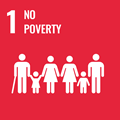
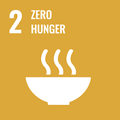
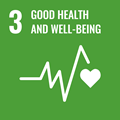
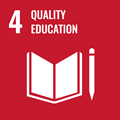
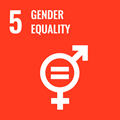
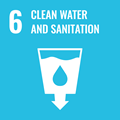
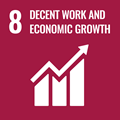
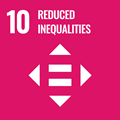
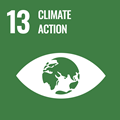
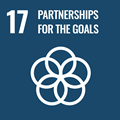
.jpg?proc=MediumImage) The focus of education support to local governments in Uganda is to improve school infrastructure and public education services in poor and neglected areas. The cooperation takes place under the leadership of local governments who implement their own plans. Support is provided to both primary and secondary schools and includes building infrastructure and capacity development for staff, providing access to study materials, menstrual health services, psychosocial support and school meals.
The focus of education support to local governments in Uganda is to improve school infrastructure and public education services in poor and neglected areas. The cooperation takes place under the leadership of local governments who implement their own plans. Support is provided to both primary and secondary schools and includes building infrastructure and capacity development for staff, providing access to study materials, menstrual health services, psychosocial support and school meals..jpg?proc=MediumImage) The right to access to clean water for all is a specific development goal in the UN SDGs and defined as a human right.
The right to access to clean water for all is a specific development goal in the UN SDGs and defined as a human right.
Increased access and sustainable use of safe water sources and improved sanitation practices benefit public health, reduce the incidence of life-threatening diseases, promote environmental protection and support gender equality, as well as promote better learning environment in schools. All these factors form the basis of Iceland's support in the WASH sector in Uganda. The aim is to improve the services of local governments so that everyone has access to safe water and sanitation in Iceland’s target areas.
Results from the Buikwe WASH Project
Thanks to the water and sanitation (WASH) project in Buikwe, it has been possible to bring potable water closer to people's homes and upgrade the water systems so that they meet the requirements of modern times. About 62 thousand people now have access to safe water. Results from an independent evaluation of the project in the beginning of 2022 indicate that access to potable water has now reached over 89% in the target villages, compared to 58% in 2015. Access to improved sanitation has also improved significantly but before the project began, there were no latrines, neither in the villages nor in the schools, which has now completely changed. 92% of the villages have reached open defecation free status, which was widespread before. This has contributed to improved public health, with considerable reduction in the frequency of diarrhea among children aged 0-4, or from 29% in 2015 to 17% in 2021. Efforts have also been done to strengthen the management, operation and maintenance of the water supply systems, which are managed by the Buikwe District Water Authority. 377 homes were connected to the water system, and over 15 hundred people have received water straight from the tap.
Article about the Buikwe WASH project supported by Iceland on the Grundfos website.
Cooperation with International Organisations
United Nations Children's Fund - UNICEF
 The number of refugees is high in Northern Uganda. About 1.4 million refugees are currently staying in this area and the largest refugee settlements in Africa can be found there. These settlements play an important role in promoting peace in this fragile part of the world, but also place a huge strain on infrastructure. Refugees can easily enter Uganda due to the government's open borders policy. Since 2019, Iceland has supported UNICEF in Uganda in the development of water and sanitation facilities in schools, health institutions and villages in two districts with refugee population, Arua and Adjumani. The collaboration with UNICEF aims to integrate humanitarian work and development cooperation with support for both refugees and host communities. The current project is for three years, and it is expected that more than 43 thousand people will benefit from it. Provision of water supply and sanitation in schools will benefit more than 13 thousand students, and improved WASH facilities at health centers will benefit about 30 thousand people.
The number of refugees is high in Northern Uganda. About 1.4 million refugees are currently staying in this area and the largest refugee settlements in Africa can be found there. These settlements play an important role in promoting peace in this fragile part of the world, but also place a huge strain on infrastructure. Refugees can easily enter Uganda due to the government's open borders policy. Since 2019, Iceland has supported UNICEF in Uganda in the development of water and sanitation facilities in schools, health institutions and villages in two districts with refugee population, Arua and Adjumani. The collaboration with UNICEF aims to integrate humanitarian work and development cooperation with support for both refugees and host communities. The current project is for three years, and it is expected that more than 43 thousand people will benefit from it. Provision of water supply and sanitation in schools will benefit more than 13 thousand students, and improved WASH facilities at health centers will benefit about 30 thousand people.
In January 2022,primary and secondary schools in Uganda reopened after the government decided to close them in March 2020 due to the corona virus outbreak. At the beginning of the year, Iceland received a request for support from UNICEF for a hygiene project to ensure safe re-opening of schools to prevent the spread of COVID-19. The total number of schools is 13,686 and the aim of the project was to facilitate that they could all open as safely as possible. Assistance to the schools is prioritized according to risk assessment in the districts. Close cooperation is maintained with the Ministry of Education and the district authorities in the distribution of WASH packages, and the schools also receive IEC materials on hygiene and hygiene practices.
United Nations Development Programme - UNDP
 Iceland supported the election monitoring of the United Nations Development Programme (UNDP) for the country's presidential and parliamentary elections in January 2021. The aim was to ensure that the elections took place peacefully and to enable voters to exercise their right to vote without obstacles. The support focused on enhancing transparency and ensuring that the public had opportunities to participation, strengthening the work of the National Electoral Commission and promoting peaceful elections, thereby promoting and strengthening democracy in Uganda.
Iceland supported the election monitoring of the United Nations Development Programme (UNDP) for the country's presidential and parliamentary elections in January 2021. The aim was to ensure that the elections took place peacefully and to enable voters to exercise their right to vote without obstacles. The support focused on enhancing transparency and ensuring that the public had opportunities to participation, strengthening the work of the National Electoral Commission and promoting peaceful elections, thereby promoting and strengthening democracy in Uganda.
United Nations Population Fund - UNFPA
 Iceland supports the United Nations Population Fund (UNFPA) by sponsoring a temporary seconded expert to its office in Kampala. Expanding cooperation with the agency is under consideration.
Iceland supports the United Nations Population Fund (UNFPA) by sponsoring a temporary seconded expert to its office in Kampala. Expanding cooperation with the agency is under consideration.GRÓ - International Centre for Capacity Development and Uganda
GRÓ - International Centre for Capacity Development, which aims to strengthen the capacity and expertise of individuals, organizations and institutions in developing countries through capacity building and training programmes in four thematic areas: gender equality, geothermal energy, land restoration and fisheries, has admitted fellows from Uganda who have graduated from all four programmes. Read more about GRÓ on the center's website.
Kalangala – a Success Story
A turning point was in Iceland’s development cooperation in Uganda when cooperation with Kalangala district by Lake Victoria was completed in the end of 2019. The islands are home to 70 thousand people on 84 islands. Iceland has from the beginning of the cooperation carried out development work in fishing communities. In Kalangala, Iceland has supported diverse projects since the inception of its bilateral development cooperation in Uganda, when the capacity of the local government was very weak. During the first years of the partnership, the focus was on fisheries but moved later to providing a holistic support to education, which reached all educational institutions on the islands, i.e. 26 primary schools, three secondary schools and two vocational schools at the secondary level.
The support included, among other things, improved equipment and construction of classrooms, teacher training, textbooks for all students, dormitories for children from remote islands, teachers' apartments, latrines in all schools and school meals cooked with energy-saving stoves for all students.
Emphasis was placed on the involvement of parents in school activities and in preparing school meals. Sports, music and drama were also supported. Iceland is the only donor country that has supported education on the islands.
In 2018, an external evaluation of the partnership in Kalangala was carried out.
Uganda is a mountainous and landlocked country lying astride the equator in the eastern part of Africa. The size of the country is 240 thousand square kilometers and it has borders with South Sudan, the Democratic Republic of Congo (DRC), Rwanda, Tanzania and Kenya. Kampala is the capital and the estimated total population is over 45 million. The southern part of the country covers a large part of Lake Victoria, the second largest lake in the world, and one of the main sources of the Nile River. The nature of Uganda is extremely diverse, the climate is mild, and the country is among the most fertile countries in Africa. Uganda is nevertheless one of the poorest countries in the world, ranking 166th out of 191 countries on the United Nations Human Development Index. The nation is very young, and the annual population growth is 3.3%. About 46% of the population is under the age of 15 and 77% is under the age of 30. Most of the country's population lives on agriculture. Coffee, tea, cotton, tobacco and sugar are among the products grown for export, while bananas, corn, cassava root, rice, potatoes, beans and peanuts are among the main food types grown for domestic consumption.
